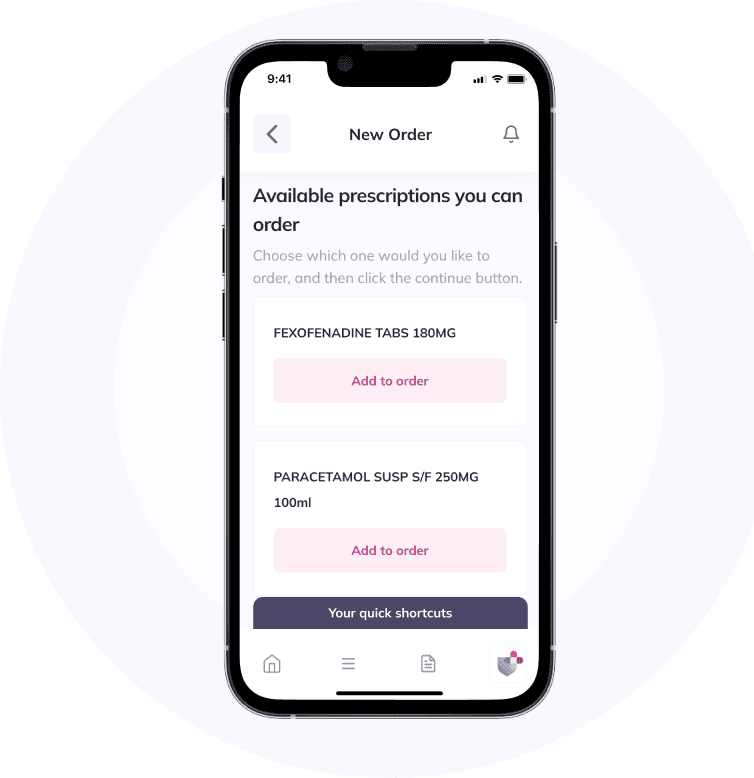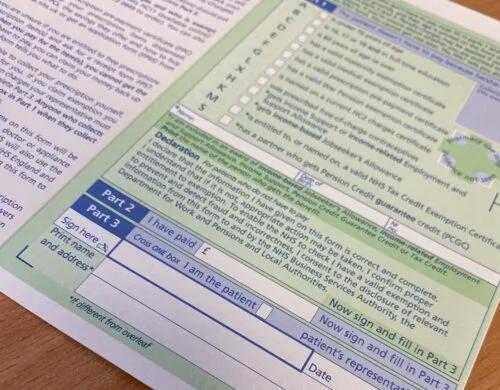
September 17, 2025 (Current Version)
April 2, 2025
The safest way to buy prescription medicine online is from a trusted pharmacy, but how do you spot a genuine online pharmacy? Many online pharmacies selling medicines are not registered as pharmacies, so buying from them is potentially unsafe. Medicines from an unregistered website might be out of date, diluted or counterfeit medication or may not be suitable for you, putting your health at risk.
This guide will highlight what you need to look out for when choosing a safe legitimate online UK pharmacy and some of the red flags to look out for.
⚕️ What are the signs of a trustworthy and safe online pharmacy?
General Pharmaceutical Council (GPhC) Registration
Any online pharmacy licensed to practise in Great Britain should display their General Pharmaceutical Council (GPhC) registration number, their address, and their Superintendent Pharmacist’s name and individual registration number.
In the case of Now Patient we display this information in the middle of our home page and on our About Us page. This is in the form of a small, rectangular, green icon that reads Registered Pharmacy above the registration number, and which links to our GPhC registration details.
You can verify this information by visiting www.pharmacyregulation.org, where you can search for a pharmacist or pharmacy using their name or registration number. Here, you’ll also be able to see any recent inspection reports and if the pharmacy has been subject to any notices or conditions.
Medicines and Healthcare products Regulatory Agency (MHRA)
The MHRA ensure medicines, medical devices and blood components for transfusion meet applicable standards of safety, quality and effectiveness. They also ensure that pharmacy services have the necessary legal and regulatory permissions to run a pharmacy website. At Now Patient we are fully regulated by the MHRA. You can verify this information by visiting PARD where you can search for our pharmacy name Infohealth.
Licensed pharmacists
Online pharmacies must employ licensed pharmacists to provide prescription medications to patients and advise them on proper dosage, possible side effects and advice on health conditions. This adds another layer of trust and legitimacy to an online pharmacy.
All our pharmacists at Now Patient are licensed and each one is named with a short bio on their background and professional history. When you click onto their profile you can see their GPhC number which will take you directly to their registration details.
Care quality commission (CQC)
The Care Quality Commission independently monitors, inspects and regulates health and social care services, and includes ratings in all its evaluations. Its role reaches further than just pharmacies, it also extends to hospital and dental settings. We are not currently CQC registered therefore we use independent pharmacist prescribers.
Contact information
Any legitimate online pharmacy should also clearly provide contact information, such as an email address, phone number and a physical address to which you can send post. If you call or email, you should receive a prompt reply.
There should also be information about how to lodge a complaint about the pharmacy, which is part of GPhC requirements.
For Now Patient, all of this information is on our About Us – NowPatient page, which is linked to from our footer on every page.
Advice and help
Reputable GPhC-registered pharmacies should go above and beyond selling pharmacy products and medications, they should also offer plenty of advice and support, whether or not you buy medication from them.
At Now Patient we maintain Blog section which features easy to understand articles about different conditions, medications and current topics.
Customer reviews and ratings
Legitimate online pharmacies should show feedback they’ve received and use any negative reviews as a way to improve their service. However, not all ratings and reviews are trustworthy.
When looking at a website, consider where their reviews and ratings are hosted. Those simply posted on the website directly should be regarded with suspicion, instead look to see if the website is using a third party.
At Now Patient we collect feedback using Trustpilot, which is a well-known review website. You can view our ratings and reviews here. We’re proud to maintain a 4.9 star rating (out of 5 stars) from actual customers.
Tips
- A website claiming to be an online pharmacy in the UK which does not clearly display GPhC and MHRA approval may be fake
- Look for “https://” at the beginning of the website address, as this shows your data is being protected
- Websites which do not provide contact details or information about how to make a complaint should be a warning sign
- Check if the online healthcare service and healthcare professionals working there are registered with UK regulators
- Ask questions about how the service works
- Check what after-care you will receive
📝 Conclusion
Some online pharmacies are not trustworthy. It is extremely important when considering where to buy prescription drugs, that the pharmacy is registered with the GPhC, clear contact details, accessible polices and licensed pharmacists are available on the website. The addition of health-related blogs and Trustpilot ratings and reviews all add to trust and confidence.
Sources
Medical Disclaimer
NowPatient has taken all reasonable steps to ensure that all material is factually accurate, complete, and current. However, the knowledge and experience of a qualified healthcare professional should always be sought after instead of using the information on this page. Before taking any drug, you should always speak to your doctor or another qualified healthcare provider.
The information provided here about medications is subject to change and is not meant to include all uses, precautions, warnings, directions, drug interactions, allergic reactions, or negative effects. The absence of warnings or other information for a particular medication does not imply that the medication or medication combination is appropriate for all patients or for all possible purposes.







